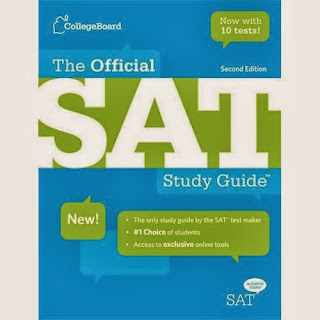Some recent articles like this one from USA Today suggest that SAT scores are not that important. The article includes quotes from directors of admissions at Harvard, Cal Tech, and Duke that suggest that SAT scores are only a small piece of the admissions puzzle.
It is true that the scores are just one of many things that these competitive schools consider, but in reality these schools only seem to accept students with very high scores.
Almost all students who get into Harvard have an SAT score above 2100.
Cal Tech students appear to have even higher SAT scores.
These admissions directors might say that the scores aren't that important, but students who don't have strong SAT scores rarely get into their schools.
The better your score, the better chance you have of getting into the school of your dreams.
With that in mind, students and parents continually ask me when to start SAT preparation. The answer varies a little from student to student, but in general here are some tips that will serve almost all students well.
When should I start preparing for the SAT?
-Many students take the SAT 2 to 3 times
Years ago students would take the SAT once an be done with it. Because so many students are striving for the best score they can get, many take it more than once. Many colleges and universities will look at the best scores. Some will take the top score from each section.
-Students should plan on taking it for the first time in the Spring of their Junior year.
The SAT is offered January, March, May, and June. Often times the January test coincides with 1st semester finals, so I recommend taking the test for the first time in March. If you take it in March you will have another opportunity to take it again in May or June.
AP students should definitely consider taking it in March. They will be preparing for their AP tests in April and May, so it is difficult to take the SAT at the same time.
Keep in mind that if you plan on taking SAT Subject Tests, you will want to take them in June. The Subject Tests assess your mastery of a specific subject, like Chemistry. Take them in June, near the end of your Chemistry class, so you will be well prepared for them. If you take a Subject Test in June, you can't take the SAT in June.
Because you will be applying to colleges and universities in the Fall, the last time to take the SAT before applying is in October. You can still take it in November or December of your Senior year, and send your results after your applications, but this is a last minute solution, and I do not recommend it.
-Students should start preparing 3-months before they take their first SAT.
Over the course of 10 to 12 sessions with a Professional SAT Instructor, like the instructors we train at Tried & True Tutoring, most students can improve their score by about 300-points. This is a very significant improvement. An extra 300-points on your SAT score will open up many new school possibilities for you.
Students usually do sessions weekly, so you want to budget about 3-months for preparation. If you are planning on taking the March test, you might want to think about starting in December or January.
How do I know if I really need 3-months to prepare?
-Find out what type of score you need to get into the college you want to go to.
Find out the score you need. Go here, to find out the average scores of students accepted into your dream school.
-Take a practice test.
Take a practice test to see how you are currently performing on the SAT. You can take a free, complete practice test by visiting www.triedandtruetutoring.com, scrolling over STUDENTS, and clicking FREE SAT.
After you take that test, you will get a detailed score report that shows you exactly what you need to do to increase your score!









